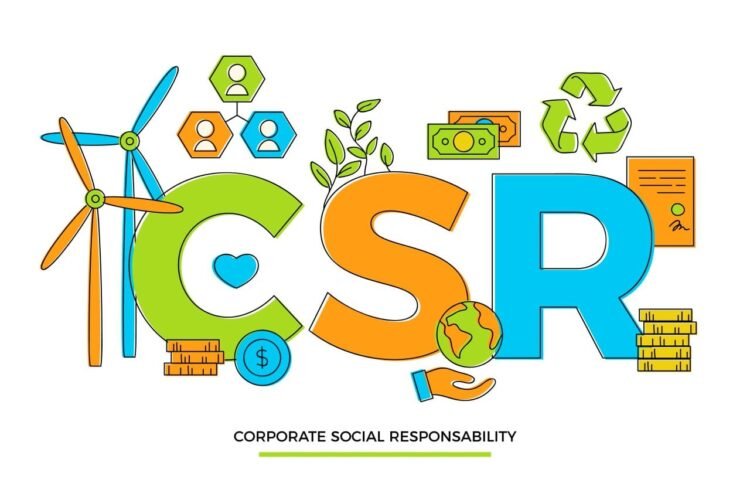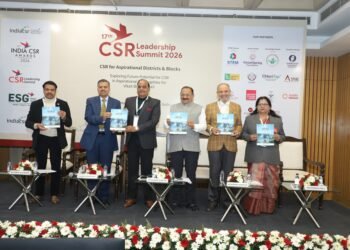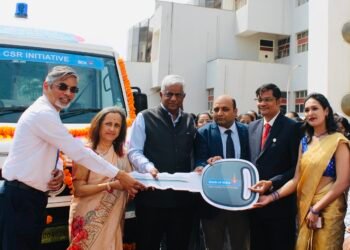By Yamini Kumar Jaipuria
When it comes to corporate social responsibility initiatives in India, education, healthcare and sanitation comprise some of the key programmes. In the internet era, however, the lack of digital literacy can curb progress on various fronts, especially in the case of rural and underserved communities. In this context, organisations need to reassess their approach by including programmes that bridge the digital divide and ensure equitable access to resources for all cohorts.
Understanding Digital Divide Issues
In the age of technological innovations, digital knowledge can be a pathway to access numerous services and institutional benefits. Oxfam’s India Inequality Report 2022 highlights issues driven by the digital divide. For instance, among all students enrolled in any course, barely 25% could access the internet through any device, while only 9% had access via a computer. The report notes that economic inequality is the primary driver of the digital divide.
While the transformative impact of digital tools in education and healthcare is well known, the existing digital divide sustains inequality that disproportionately affects marginalised sections of society, especially due to economic inequality. With the collective responsibility of public, private and non-governmental organisations, the multifaceted role of CSR can help in ensuring a digitally inclusive future for all.
To elaborate, digital inclusion denotes a situation wherein people, irrespective of social status, financial standing or location, can access and use computers and the internet. Digital inclusion is critical because digital technologies have emerged as an integral part of modern life, providing instant access to education, healthcare, welfare and enterprise resources as well as benefits.
Lack of digital access remains a serious concern as it curtails people’s potential by preventing them from capitalising on available opportunities. As a result, the digital divide keeps perpetuating inequalities across diverse fronts in India. For example, women, specially-abled persons, ethnic minorities, people residing in remote regions and marginalised communities can all be disproportionately affected by the digital divide due to an inequitable distribution of resources created by the lack of access to digital tools. Thereby, socio-economic disparities will be widened since the economic gains are reaped only by people enjoying digital access.
CSR Strategies to Address the Problem
Keeping this in mind, the CSR programmes of corporates could focus on multiple measures to bridge the digital gap, such as:
Developing digital infrastructure: This could cover investments to develop digital infrastructure that enables internet connectivity, establish computer labs and create digital learning centres in rural zones.
Creating programmes for digital skills development: Digital literacy programmes are indispensable to empower people with the skills required for thriving in the digital world. CSR funds could be used to hold workshops, awareness programmes and training sessions to boost digital literacy among marginalised sections.
Funding educational institutions: CSR initiatives can be leveraged to support academic institutions in deploying digital learning tools. Therefore, schools could be provided the requisite hardware and software, while teachers could be trained to effectively integrate technology learning into the curriculum.
Localising content as per regional aspirations: The diversity of languages and dialects in India can pose unique challenges in communicating with local communities. CSR initiatives could be used to create and promote digital content in various regional languages to address the needs of varied linguistic groups. A localised approach based on regional languages would accelerate digital literacy, information access and consumption of content.
The Impact and Need for Digital Literacy
The importance of digital training cannot be overemphasised. Take the case of Poornima D, a woman in her 20s from rural Assam who was earlier apprehensive about visiting a bank. Today, Poornima informs people with pride that she is a Banking Correspondent (BC) agent. Her transformation is thanks to the training and opportunity she was provided.
In many ways, digital literacy and financial literacy must go hand-in-hand as digital transactions have now become part of everyday life in India. Accordingly, the digital divide can only be bridged if both digital and financial literacy are part of CSR programmes, particularly with a focus on women. Some statistics will highlight why women need special attention here.
As of February 2025, the Centre’s flagship Pradhan Mantri Jan Dhan Yojana had opened 54.97 crore bank accounts. However, a substantial proportion of the PMJDY accounts are either dormant or underutilised. Further, women hold 55.7% of these accounts, but most encounter hurdles when using digital financial services. This is more so because 66.6% of these account-holders live in rural and semi-urban regions where digital services and infrastructure are limited. Effective outreach to these female beneficiaries is limited since less than 10% of rural BCs are women.
These statistics underscore why digital literacy among females must be accelerated since it is intertwined with women’s empowerment. Data from the Reserve Bank of India and the Ministry of Finance shows that women’s accounts record 23% lower transactions than males, indicating why the financial inclusion of females requires special attention in ongoing CSR efforts.
Women-centric financial empowerment efforts could translate into economic independence for females. When women enjoy control of financial activities, their families and entire communities stand to benefit. This is why it is believed that when we educate a woman, the entire family is educated. To achieve this goal, women-centric schemes are necessary to address distinct challenges that keep women financially excluded.
Meeting SDG Targets
There is another crucial reason for CSR programmes to be focused on digital and financial inclusion – it directly and simultaneously addresses several UN SDGs (Sustainable Development Goals). These include SDG 1 (No Poverty), SDG 5 (Gender Equality), SDG 8 (Decent Work and Economic Growth), SDG 9 (Industry, Innovation and Infrastructure) and SDG 10 (Reduced Inequalities).
Besides the above, data from the Ministry of Finance exhibits clear economic benefits as financial inclusion holds the potential to add 6% to the nation’s GDP by 2030. Additionally, the sustainable impact of financial and digital literacy efforts enables people to become part of the mainstream economy even after the CSR programme concludes. Ultimately, these programmes are in sync with Schedule VII mandates under the Companies Act, which require regulatory compliance while driving significant social impact.
Finally, one should reiterate that the collective efforts of public, private and civil society entities are imperative to bridge the digital divide successfully. The integration of digital inclusion strategies into CSR programmes can then facilitate the creation of a truly inclusive society by uncovering new opportunities for India’s underprivileged communities on the path to ‘Viksit Bharat’ by 2047.
About the Author

Yamini Kumar Jaipuria, Managing Trustee, Cosmo Foundation.
(India CSR)
***






















